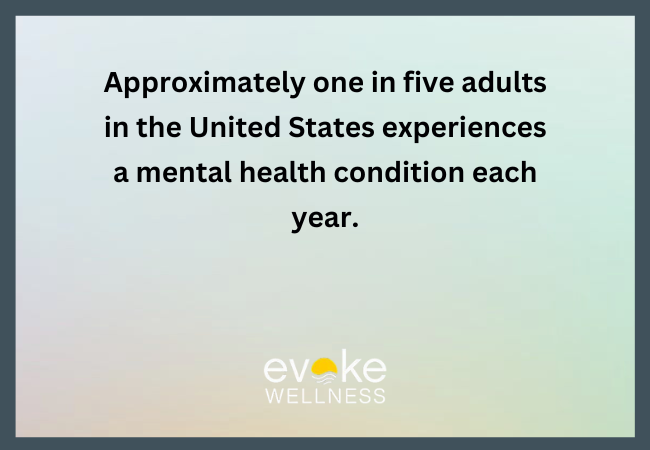In recent years, the importance of behavioral health has gained widespread attention as more people recognize its crucial role in overall well-being. Behavioral health encompasses a broad spectrum of mental and emotional well-being, including the impact of behaviors, thoughts, and emotions on physical health. It is not just about mental health conditions such as depression or anxiety—it also includes habits and lifestyle choices that affect overall wellness.
The relationship between mental and physical health is deeply intertwined. Research shows that individuals who struggle with mental health disorders are more prone to developing chronic physical conditions, and vice versa. Addressing behavioral health holistically allows for more effective prevention, treatment, and long-term recovery.
What is Behavioral Health
Behavioral health is a term that encompasses a wide range of factors that contribute to emotional, psychological, and social well-being. It refers to how behaviors and habits influence a person’s health and quality of life. Unlike traditional healthcare, which primarily focuses on treating physical ailments, behavioral health emphasizes the connection between lifestyle choices, mental health conditions, and physical health outcomes.
Key Aspects of Behavioral Health
- Mental Health Disorders – Conditions such as depression, anxiety, PTSD, and bipolar disorder fall under behavioral health. These conditions affect thoughts, emotions, and behaviors, often leading to disruptions in daily life.
- Substance Use Disorders – Addiction to alcohol, drugs, or prescription medications is a significant aspect of behavioral health. Many individuals struggling with substance abuse also experience co-occurring mental health disorders.
- Behavioral Patterns – Unhealthy behaviors, such as poor diet, lack of exercise, and chronic stress, can lead to long-term physical and mental health issues.
- Coping Mechanisms – How individuals manage stress, trauma, and life challenges plays a vital role in behavioral health. Effective coping strategies can improve resilience and overall well-being.
Behavioral health services are designed to address these aspects through therapy, counseling, medication management, and holistic treatments.
Connection Between Mental and Physical Health
The relationship between mental and physical health is well-documented. Poor mental health can contribute to chronic illnesses, while physical health conditions can negatively impact psychological well-being.
The Impact of Mental Health on Physical Well-Being
- Increased Risk of Chronic Diseases – According to the Centers for Disease Control and Prevention (CDC), individuals with depression are at higher risk for developing conditions such as diabetes, cardiovascular disease, and obesity.
- Weakened Immune System – Chronic stress and anxiety can suppress immune function, making the body more vulnerable to infections and diseases.
- Poor Sleep Quality – Mental health disorders often lead to insomnia or disrupted sleep, which can contribute to weakened cognitive function, increased stress levels, and higher risks of heart disease.
- Substance Abuse and Self-Medication – Many individuals with untreated mental health disorders turn to alcohol or drugs to cope, exacerbating both physical and psychological health conditions.
The Effect of Physical Health on Mental Well-Being
- Chronic Pain and Depression – Conditions like arthritis, migraines, and fibromyalgia are often linked to higher rates of depression and anxiety.
- Exercise and Mood Improvement – Regular physical activity releases endorphins, which help reduce stress, anxiety, and symptoms of depression.
- Nutrition and Brain Function – A healthy diet plays a crucial role in mental health. Nutrient deficiencies in vitamins such as B12 and folate have been linked to depression and cognitive decline.
- Hormonal Imbalances – Conditions such as thyroid disorders can lead to mood swings, depression, and anxiety. Addressing these imbalances can significantly improve mental well-being.
Common Behavioral Health Disorders
1. Mental Health Disorders
- Depression – Persistent sadness, loss of interest in activities, and fatigue.
- Anxiety Disorders – Excessive worry, panic attacks, and difficulty relaxing.
- Bipolar Disorder – Extreme mood swings, from manic highs to depressive lows.
- Obsessive-Compulsive Disorder (OCD) – Uncontrollable repetitive behaviors or thoughts.
2. Substance Use Disorders
- Alcohol Use Disorder – Inability to control alcohol consumption despite negative consequences.
- Drug Addiction – Dependence on substances like opioids, stimulants, or benzodiazepines.
- Nicotine Addiction – Dependence on cigarettes or vaping, leading to lung diseases and heart issues.
3. Behavioral and Emotional Disorders
- Post-Traumatic Stress Disorder (PTSD) – Emotional distress following trauma.
- Eating Disorders – Disorders such as anorexia, bulimia, and binge eating.
- Sleep Disorders – Chronic insomnia, restless sleep, or irregular sleep patterns.

How to Improve Behavioral Health
1. Prioritize Mental Health Care
- Therapy and Counseling – Seeking help from professionals for talk therapy (CBT, DBT), group therapy, or support groups.
- Mindfulness and Meditation – Practicing deep breathing, yoga, or guided meditation to reduce stress and anxiety.
- Medication Management – If prescribed, taking medications for depression, anxiety, or mood stabilization under medical supervision.
2. Maintain a Healthy Lifestyle
- Regular Exercise – Physical activity releases endorphins, improving mood and reducing stress.
- Balanced Diet – Nutrient-rich foods support brain function and emotional stability.
- Quality Sleep – Establishing a consistent sleep schedule helps regulate emotions and cognitive functions.
3. Avoid Harmful Behaviors
- Limit Alcohol and Drug Use – Reducing or eliminating substance use improves physical and mental health.
- Manage Stress Effectively – Finding healthy coping mechanisms, such as journaling, therapy, or hobbies, to handle stress.
- Build Supportive Relationships – Connecting with family, friends, or support groups to foster emotional resilience.
4. Seek Professional Help When Needed
If behavioral health issues are affecting daily life, seeking professional support is vital. Options include:
- Therapists and Counselors – For addressing mental health and emotional well-being.
- Behavioral Health Specialists – For personalized treatment plans and holistic care.
- Rehabilitation Programs – For substance use disorders and co-occurring conditions.
Role of Behavioral Health in Addiction Recovery
For those struggling with substance use disorders, addressing behavioral health is essential to achieving lasting recovery. At Evoke Wellness, we focus on an integrated treatment approach that considers both addiction and mental health challenges.
Why Addressing Behavioral Health Matters in Addiction Treatment
- Dual Diagnosis Treatment – Many individuals with substance use disorders also suffer from mental health conditions. Treating both simultaneously improves recovery outcomes.
- Behavioral Therapy and Counseling – Evidence-based therapies such as Cognitive Behavioral Therapy (CBT) and Dialectical Behavior Therapy (DBT) help individuals change negative thought patterns and develop healthier coping mechanisms.
- Relapse Prevention – Understanding behavioral triggers and learning effective coping strategies reduce the risk of relapse.
- Holistic Approaches – Mindfulness practices, exercise programs, and nutritional counseling support overall well-being and reinforce positive habits.
Seeking help from an addiction treatment center in Ohio ensures that individuals receive comprehensive care tailored to their needs.
Seeking Professional Help for Mental Health Treatment in Ohio
Behavioral health is more than just mental health—it’s about how thoughts, behaviors, and emotions influence physical well-being. Addressing behavioral health issues early can prevent long-term health complications and improve quality of life.
By taking proactive steps, such as seeking therapy, maintaining a healthy lifestyle, and reducing stress, individuals can achieve better mental and physical health. If you or a loved one is struggling with mental health issues or substance use disorders, professional help is available. At Evoke Wellness Addiction Treatment at Hilliard, we offer specialized programs designed to support individuals on their journey to recovery. Our treatment options include:
- Medical Detox – Safe and supervised detoxification to help manage withdrawal symptoms.
- Residential Treatment – Comprehensive, 24/7 care for those requiring intensive support.
- Outpatient Programs – Flexible treatment options that allow individuals to receive care while maintaining daily responsibilities.
- Aftercare and Relapse Prevention – Long-term support to ensure sustained recovery.
If you or a loved one needs mental health treatment in Hilliard, don’t wait to seek help. Call us today at 866.430.9267 or contact us to begin the journey toward healing.
FAQs About Behavioral Health
What is the difference between behavioral health and mental health?
Behavioral health is a broader term that includes mental health, substance use, and behaviors that impact well-being. Mental health focuses specifically on emotional and psychological conditions.
How does behavioral health affect physical health?
Unhealthy behaviors, such as poor diet, lack of exercise, and substance abuse, can contribute to chronic illnesses like heart disease and diabetes. Addressing behavioral health improves overall wellness.
What are common signs of behavioral health disorders?
Signs include mood swings, withdrawal from social activities, substance use, changes in appetite or sleep, and difficulty managing stress.
Can behavioral health treatment help with addiction recovery?
Yes, behavioral health treatment addresses the underlying causes of addiction and provides coping strategies to prevent relapse.
How do I find the right behavioral health treatment program?
Look for a licensed facility that offers comprehensive care, including therapy, medical support, and personalized treatment plans, such as Evoke Wellness Addiction Treatment at Hilliard.



